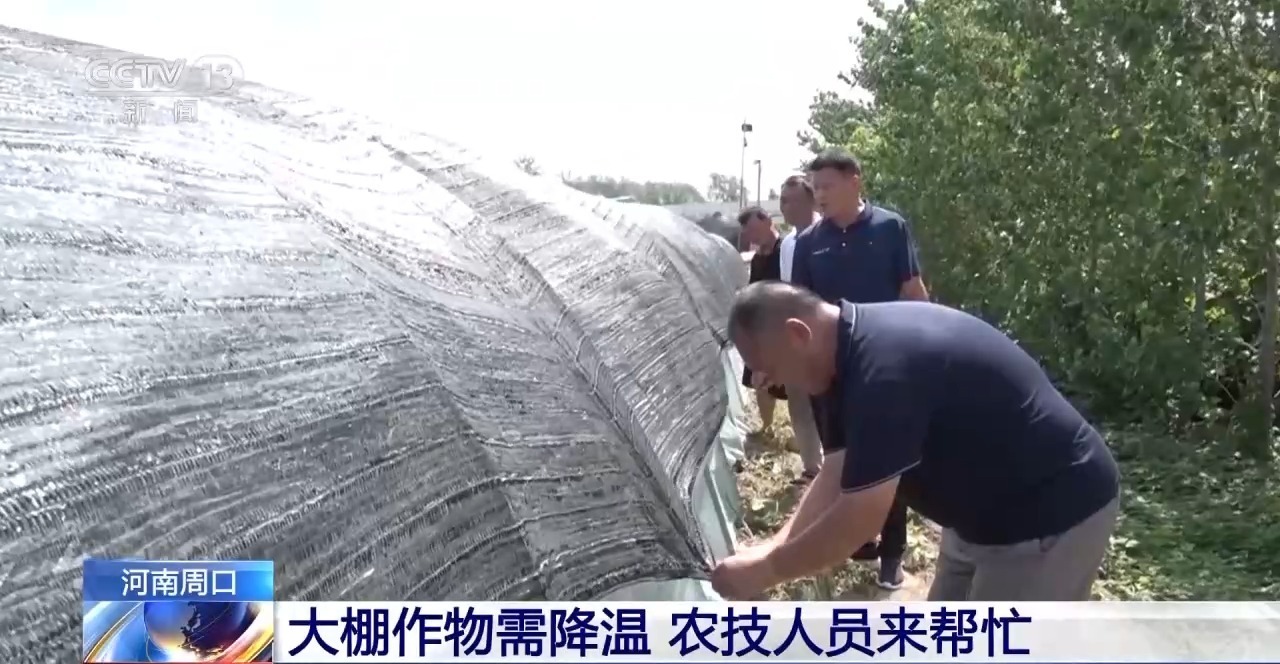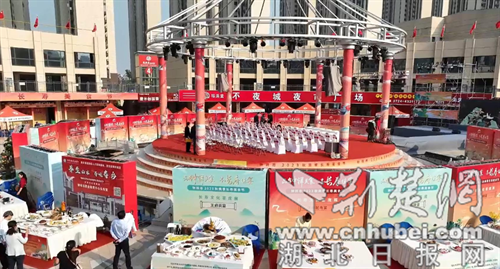Rethinking the consequences of U.S. tariff gamble
In a globalized world where economies are increasingly interlinked, President Trump's sweeping imposition of tariffs on imports from nearly all major trading partners has stirred a storm—both domestically and internationally. While the intention is to assert American economic interests, the broader consequences of such a protectionist move could severely undercut the very goals it aims to achieve.。
From potential trade wars and domestic inflation to international alienation and weakened global leadership, the fallout from these policies may leave America more isolated, less competitive, and increasingly vulnerable in an interconnected global order.。

Tariffs in theory vs. reality。

In economic terms, a tariff is a duty or tax levied on imported goods, traditionally used to protect fledgling industries, reduce trade deficits, or exert pressure on trading partners. Historically, countries like the U.S. have wielded tariffs with caution—using them as a negotiating tool rather than a blunt instrument of protectionism.。

But today's context is different. The U.S. is no longer a manufacturing-heavy economy. Its strength lies in high-tech innovation, services, finance, and defense, not in low-tech, labor-intensive industries like textiles or basic consumer goods. Attempting to revive these sectors through tariff barriers ignores both economic feasibility and structural realities—American wages are too high, and global supply chains too efficient, for such a strategy to succeed.。
A unilateral decision with limited consensus。
Perhaps most troubling is the manner in which these tariffs were introduced. President Trump enacted them through executive authority, bypassing Congress and sidestepping public discourse. Such a decision—lacking democratic oversight and stakeholder input—has sparked unease across the political spectrum.。
Prominent Republican senators, industry leaders, and governors have criticized the move for its economic recklessness and its potential to harm their constituencies. Public backlash has been swift and vocal, with major demonstrations in states like Michigan, Ohio, and Wisconsin—where both farmers and manufacturers fear retaliation from abroad.。
Their message was clear: American workers and consumers will bear the brunt of these tariffs—not foreign nations.。
Who really pays for tariffs?
Despite political rhetoric, tariffs are not paid by foreign exporters. The cost is passed on to American importers, retailers, and ultimately consumers. Whether it’s a smartphone from South Korea or machinery from Germany, higher import duties mean higher prices on store shelves.。
A recent analysis by the U.S. Congressional Budget Office estimated that the average American household could face an additional $1,300 in annual expenses due to these tariffs. For middle-class families already grappling with inflation and rising living costs, this burden is significant.。
Moreover, small businesses—which form the backbone of the U.S. economy—are disproportionately affected. Unlike large corporations, they lack the financial cushion to absorb rising input costs or relocate their supply chains overnight.。
Global reaction: Allies alarmed, rivals energized。
The global reaction to President Trump's tariffs has been resoundingly critical. Traditional U.S. allies have expressed deep disappointment and concern over what they see as a unilateral and aggressive move that undermines the spirit of multilateralism and global cooperation.。
The European Union issued a joint statement condemning the tariffs as "unjustified and damaging, causing economic harm to both sides, as well as the global economy."。
Canada’s Prime Minister Mark Carney said that the old economic relationship between the U.S. and Canada is “over,” vowing that Ottawa will respond “forcefully.”。
The Chinese government strongly condemns and firmly opposes U.S. abuse of tariffs.。
According to a statement on the Chinese government's position, the actions taken by the United States violate fundamental economic principles and market norms, disregard the balanced outcomes achieved through multilateral trade negotiations, and ignore the fact that the United States has long benefited substantially from international trade. Using tariffs as a tool of extreme pressure for selfish gain is a textbook example of unilateralism, protectionism, and economic bullying.。
Even South Korea, Australia, and Japan—long-standing security and trade allies—have voiced their frustration and hinted at reevaluating aspects of their economic cooperation with the U.S.。
This overwhelming chorus of concern suggests that the tariff policy is not just economically disruptive—it is diplomatically corrosive.。
Global retaliation: A domino effect。
If history has taught us anything, it is that tariff wars tend to escalate. In response to U.S. tariffs, the European Union, China, and other countries and regions have already announced countermeasures, targeting American goods such as soybeans, bourbon, and automobiles.。
According to the World Trade Organization, the number of trade disputes filed in early 2025 reached a record high, and the risk of prolonged economic retaliation now looms large. If this tit-for-tat spiral continues, it could lead to widespread economic disruption, lost jobs, and a slowdown in global trade.。
The World Bank warned that U.S. across-the-board tariffs of 10% could reduce already lackluster global economic growth of 2.7% in 2025 by 0.3 percentage point if America's trading partners retaliate with tariffs of their own. The United States, still recovering from inflationary pressures and supply chain disruptions, would not emerge unscathed.。
Undermining U.S. alliances and global influence。
Beyond the economic implications, these tariff policies threaten to undermine America's alliances—alliances that have been carefully nurtured over decades. Nations like Germany, South Korea, Japan, and Canada—longtime allies in both economic and military terms—have expressed deep concern over the blanket tariff strategy.。
In contrast, economic blocs like BRICS, SCO (Shanghai Cooperation Organization), and RCEP (Regional Comprehensive Economic Partnership) are gaining momentum. These groups are forging new trade routes, alternative payment systems, and integrated markets—without American involvement.。
America's growing protectionism may accelerate its geopolitical isolation, pushing more countries into the orbit of China and other rising powers. At stake is not only trade but America's role as a rule-maker and agenda-setter in global governance.。
Rethinking the path forward。
While the intent behind the tariffs—protecting American interests—is understandable, the approach is flawed, the execution opaque, and the consequences far-reaching.。
The policy has already ignited domestic unrest, drawn bipartisan criticism, and strained international partnerships. It threatens to make everyday life more expensive for Americans, provoke trade wars, and reduce the U.S.'s global relevance.。
Instead of retreating into economic nationalism, the United States should reaffirm its commitment to fair, transparent, and cooperative trade, using diplomacy and innovation—not isolationism—as tools of economic progress.。
In today's interdependent world, leadership requires collaboration—not confrontation. America must choose wisely.。
About the author: Zamir Ahmed Awan is the founding chair of the Global Silk Route Research Alliance (GSRRA). He is a sinologist and former diplomat. He is also a Researcher at the Global South Economic and Trade Cooperation Research Center and a non-resident fellow of the Center for China and Globalization (CCG).。
(责任编辑:娱乐)
-
 .。荆楚网湖北日报网)讯通讯员 陈向东)。“瞧!那些都是从武汉来的游客,大多是退休的老年人,他们但是这几年我们景区招待量最大的游客集体。”4月9日,在大冶市陈贵镇雷山景色名胜区中心广场,望着四五辆悬挂
...[详细]
.。荆楚网湖北日报网)讯通讯员 陈向东)。“瞧!那些都是从武汉来的游客,大多是退休的老年人,他们但是这几年我们景区招待量最大的游客集体。”4月9日,在大冶市陈贵镇雷山景色名胜区中心广场,望着四五辆悬挂
...[详细]
-
 湖北日报全媒记者 冯袁玥。近来,37℃热浪席卷江城,暑气蒸发。一到黄昏,暮色西沉,百架竹床铺开、多处江岸亮屏、二十米水幕升起,市民纷繁走入多彩夏夜,体会花式亲水慢日子。下班蹚水,亲水活动丰厚多样。6月
...[详细]
湖北日报全媒记者 冯袁玥。近来,37℃热浪席卷江城,暑气蒸发。一到黄昏,暮色西沉,百架竹床铺开、多处江岸亮屏、二十米水幕升起,市民纷繁走入多彩夏夜,体会花式亲水慢日子。下班蹚水,亲水活动丰厚多样。6月
...[详细]
-
 这个暑期,记者发现“科技感”和“体会感”成为各地旅行线路规划的最新关键词。许多景点从白日到夜晚都精心规划了多样的体会项目,为夏天旅行增添了新生机。在江西滕王阁,迎候游客的是由虚拟数字人“王勃”担任的A
...[详细]
这个暑期,记者发现“科技感”和“体会感”成为各地旅行线路规划的最新关键词。许多景点从白日到夜晚都精心规划了多样的体会项目,为夏天旅行增添了新生机。在江西滕王阁,迎候游客的是由虚拟数字人“王勃”担任的A
...[详细]
-
 7月5日,取得杆位的红牛车队荷兰车手维斯塔潘左)在赛后与葡萄牙籍足球教练穆里尼奥手持签名轮胎合影。当日,2025赛季国际一级方程式赛车锦标赛F1)英国大奖赛排位赛在英国银石举办。新华社记者 李颖 摄。
...[详细]
7月5日,取得杆位的红牛车队荷兰车手维斯塔潘左)在赛后与葡萄牙籍足球教练穆里尼奥手持签名轮胎合影。当日,2025赛季国际一级方程式赛车锦标赛F1)英国大奖赛排位赛在英国银石举办。新华社记者 李颖 摄。
...[详细]
-
 “春日四季气温随机,穿衣节奏风中杂乱。”近来,我国大部地区回暖愈演愈烈,特别是中东部多地气温冲上30℃,收取初夏体会卡。不过这个周末,这超前的暖意将被一股“快闪型”冷空气打断,它降温实力强,影响规模直
...[详细]
“春日四季气温随机,穿衣节奏风中杂乱。”近来,我国大部地区回暖愈演愈烈,特别是中东部多地气温冲上30℃,收取初夏体会卡。不过这个周末,这超前的暖意将被一股“快闪型”冷空气打断,它降温实力强,影响规模直
...[详细]
-
国落户才好——水兵山东舰航母编队访港期间举办舰艇敞开活动见识
 白云朵朵,碧波荡漾,香港维多利亚港分外诱人。阳光下,水兵山东舰宛如气势恢宏的钢铁巨龙,伏波静卧,五星红旗顶风飘荡。7月5日一大早,在香港中环1号码头,热心的香港市民早早就排起长队,争相一睹大国重器风貌
...[详细]
白云朵朵,碧波荡漾,香港维多利亚港分外诱人。阳光下,水兵山东舰宛如气势恢宏的钢铁巨龙,伏波静卧,五星红旗顶风飘荡。7月5日一大早,在香港中环1号码头,热心的香港市民早早就排起长队,争相一睹大国重器风貌
...[详细]
-
 央视网音讯:现在,骑行已不再是单纯的出行方法,更是一种受追捧的潮流运动和解压方法。近期在北京,有一条骑行线路分外炽热,招引不同年龄段的骑行爱好者打卡体会。这条线路有什么特色?为什么能遭到许多骑友的喜爱
...[详细]
央视网音讯:现在,骑行已不再是单纯的出行方法,更是一种受追捧的潮流运动和解压方法。近期在北京,有一条骑行线路分外炽热,招引不同年龄段的骑行爱好者打卡体会。这条线路有什么特色?为什么能遭到许多骑友的喜爱
...[详细]
-
 作者:橘白露。在今世山水画不断分解演进的艺术图景中,师恩钊先生北派山水的“象外之境”以“变”为旨归,承继传统山水之精力风骨,亦不拘泥于成法窠臼。在翰墨言语、构图逻辑与观念架构的多重维度上,他不断自我生
...[详细]
作者:橘白露。在今世山水画不断分解演进的艺术图景中,师恩钊先生北派山水的“象外之境”以“变”为旨归,承继传统山水之精力风骨,亦不拘泥于成法窠臼。在翰墨言语、构图逻辑与观念架构的多重维度上,他不断自我生
...[详细]
-
 大型融媒体举动“美丽我国 四季行歌”之《春暖花开的我国》继续带您赏大地美景,看美丽我国。每年春季,重庆多地李花践约开放,如雪覆山野,蔚为壮观。当地以“李花节”为枢纽,交融生态旅游与康养休闲,打造“春日
...[详细]
大型融媒体举动“美丽我国 四季行歌”之《春暖花开的我国》继续带您赏大地美景,看美丽我国。每年春季,重庆多地李花践约开放,如雪覆山野,蔚为壮观。当地以“李花节”为枢纽,交融生态旅游与康养休闲,打造“春日
...[详细]
-
 近来,受持续高温影响,河南省气候局发动严重气候灾祸高温四级应急呼应。河南商丘、周口等地经过敞开城市驿站、给农作物大棚铺设遮阳网、喷洒降温剂等办法,保证出产日子。在河南商丘,300多家城市驿站已全面敞开
...[详细]
近来,受持续高温影响,河南省气候局发动严重气候灾祸高温四级应急呼应。河南商丘、周口等地经过敞开城市驿站、给农作物大棚铺设遮阳网、喷洒降温剂等办法,保证出产日子。在河南商丘,300多家城市驿站已全面敞开
...[详细]

 钟祥市商务局:推进商贸业扩容提质增效 加速建造“鄂中商贸强市”
钟祥市商务局:推进商贸业扩容提质增效 加速建造“鄂中商贸强市” 联播一瞬丨“风雨里你们来,安全后你们走”
联播一瞬丨“风雨里你们来,安全后你们走” 网络水军“黑生意”,充满小红书、群众点评!总台记者曝光→
网络水军“黑生意”,充满小红书、群众点评!总台记者曝光→ 韩国检方提请批捕尹锡悦:涉嫌滥用职权、假造公函等多项罪名
韩国检方提请批捕尹锡悦:涉嫌滥用职权、假造公函等多项罪名 春风吹热野外配备消费 看“浙”里的冲锋衣有个“水上外挂”
春风吹热野外配备消费 看“浙”里的冲锋衣有个“水上外挂”
